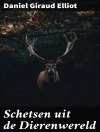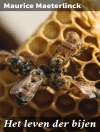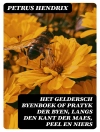Scientific Study from the year 2014 in the subject Biology – Zoology, , language: English, abstract: The major species of stingless bees in Kerala is Trigona iridipennis Smith which are easy to domesticate due to low temperament and easy adaption to various habitats. Little is known about the variations that exist among them. We therefore conducted morphometric studies among workers and drones across 14 districts in Kerala with a view to characterize them.
A total of 188 and 71 samples of drones and workers collected and analyzed various morphometric characters including head length (HL), head width (HW), proboscis length (PL), distance between two dorsal ocelli/lower intercocular distance (DBO), dorsal ocello-ocular distance (DOOD), antennal length (AL), thorax femur length (TFL), thorax tibia length (TTL), thorax metatarsus length (TML), thorax metatarsus width (TMW), thorax forewing length (TFWL), thorax forewing width (TFWW), pterostigma width (Pt St W), pterostigma length (Pt St W), hind wing length (HWL), hind wing width (HWW), number of hamuli (HAM), abdominal tergite length (Ab TL), abdominal sternum width (Ab SW), mandible length (Md L) and mandible width (Md W), head length width ratio (HLW), thorax metatarsus length width ratio (TMLW) and thorax forewing length width ratio (TFWLW).
Our studies revealed that most of the worker morhopometric characters were positively correlated across all the districts in Kerala. However, there is not much significant differences among drones across various districts. Based on our studies, even though we detected significant differences among worker morhphotmetry we could not to find distinguishing and remarkable differences among collected samples. They may be interpreted as nutritional, seasonal and climatic factors.
Tentang Penulis
Dr. Prem Jose Vazhacharickal is currently working as an assistant professor in the Department of Biotechnology, Mar Augusthinose College, Ramapuram, Kerala, India. He received the research training and academic guidance from Prof. Dr. Andreas Buerkert, University of Kassel, Germany.












